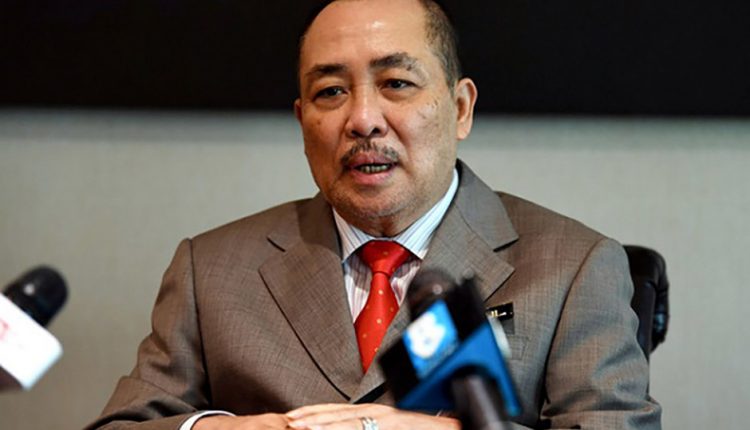KOTA KINABALU: Students from the low-income group who are pursuing tertiary education have not been forgotten by the Sabah government, says Datuk Seri Hajiji Noor.
-Advertisement-
The Chief Minister said the state had introduced the institutions of higher learning registration one-off cash assistance (Budi) programme last year.
“And we continued it this year,” he said at the Sabah Education Aid and Excellence Award presentation ceremony at the Sabah International Convention Centre (SICC) here on Tuesday (July 18).
He said assistance from the State Education Assistance Fund (Bistari) amounting to RM1mil to the National Higher Education Fund Corporation (PTPTN) would also be credited to eligible recipients through the National Education Savings Scheme (SSPN).
“The state government takes seriously the financial needs faced by the B40 group, especially to help with the registration of their children at institutions of higher learning,” he added.
Hajiji’s speech was delivered by state Science, Technology and Innovation Minister Datuk Mohd Arifin Arif.
The Chief Minister said a total of RM12mil had been allocated to some 1,600 schools statewide this year.
He said the aid was provided under the state’s Sabah School Aid Programme (Bisbah), adding that the assistance would be in the form of equipment such as computers, LCD projectors, printers, smart TVs, air-conditioning units and portable speakers to be delivered in stages.
He said Bisbah was one of the educational aid initiatives provided by the Sabah government to strengthen the performance of education in the state.
“This is in line with the Sabah Maju Jaya (SMJ) development plan, with the development of human capital being one of the main agendas emphasised by the state government,” he added.
Hajiji said the state government had also allocated RM7.5mil for students who would be taking their SPM, STPM and STAM examinations.
The government also aimed to give 38,000 students from the B40 and M40 families RM200 each through the Special Examination Cash Assistance (Bakti) programme, he added.
Meanwhile, he said the School Minor Maintenance Assistance (Balkis) programme was introduced this year with an allocation of RM4mil to help with repairs and maintenance that involved costs of RM50,000 and below.
-Advertisement-
The Computer Aid (Baik) initiative, which aims to help Sabah students from the eKasih group who were studying at higher education institutions but cannot afford to buy a computer for learning purposes, would also continue this year with an allocation of RM2mil for the purchase of 1,000 laptops.
According to Hajiji, other commitments by the state government include the Special Aid for Education Programme (Bantu) with an allocation of RM 500,000.
The Malaysian Sabah Students Secretariat (Semesta) was also launched for Sabah students at home and abroad, he added.
“An allocation of RM500,000 has also been allocated for the Sabah Student Association registered under Semesta to carry out activities”, he said.
Towards this end, the Chief Minister hoped that the extensive educational assistance provided by the state government would be fully utilised by the recipients.
Hajiji said the human capital development blueprint for Sabah (2021-2035) aimed to ensure that the syllabus, knowledge, skills and expertise of the youth as well as human capital always remained relevant.
The Sabah government would continue to implement skills training programmes including technical and vocational education and training (TVET) that were relevant to current industry needs, he added.
The state will also improve training facilities and tools at institutes under government agencies, he said.
“The field of education is always given priority as it is important to change the fate of the country’s younger generation.
“The young people of today need to be spared from falling into narrow and destructive ideologies.
“They need to be born with a competitive mindset and always ready to pursue excellence,” Hajiji said.
– The Star

